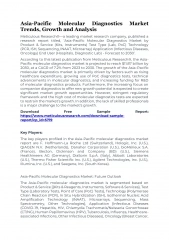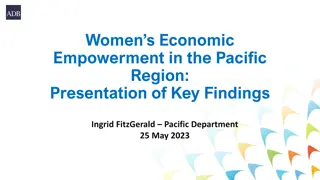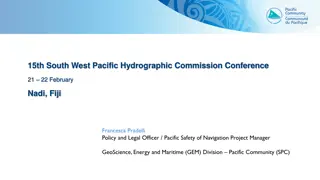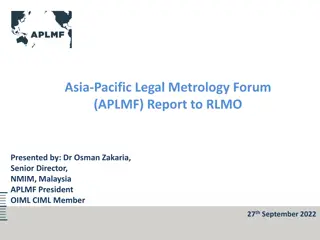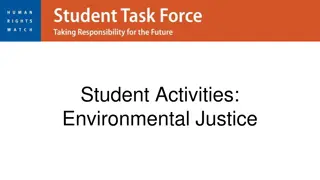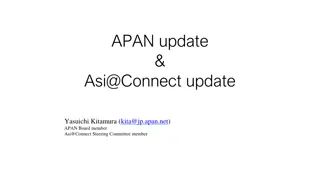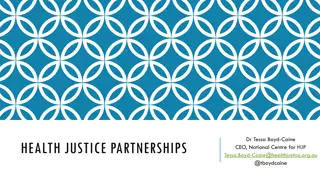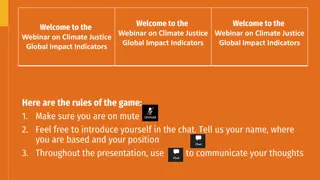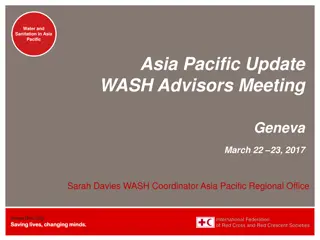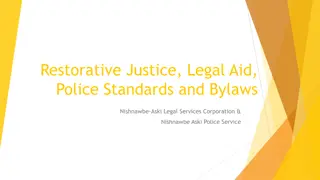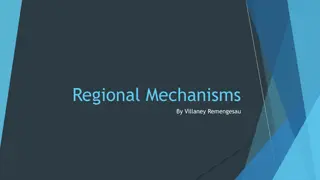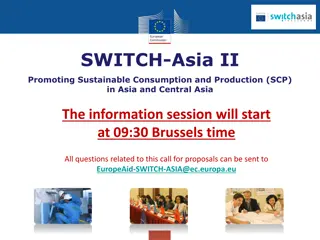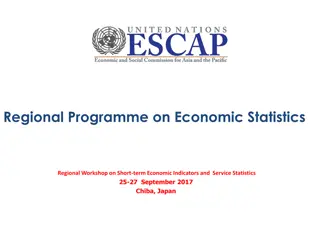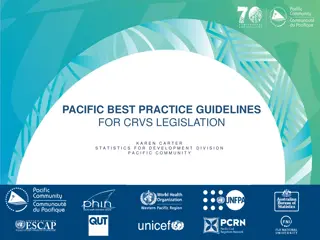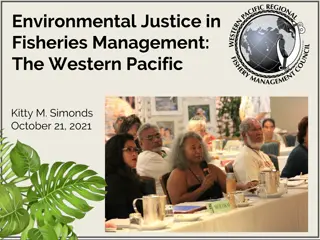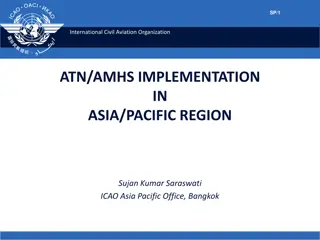Legal Empowerment Advancing Climate and Environmental Justice for Children in East Asia-Pacific
Legal empowerment empowers children to uphold their rights to a healthy environment and safe climate through legal and non-legal actions. Projects in East Asia-Pacific focus on case studies, workshops, and guidance to advance climate and environmental justice, including initiatives in Australia, Indonesia, Malaysia, Mongolia, the Philippines, Thailand, and Vanuatu.
Download Presentation

Please find below an Image/Link to download the presentation.
The content on the website is provided AS IS for your information and personal use only. It may not be sold, licensed, or shared on other websites without obtaining consent from the author. Download presentation by click this link. If you encounter any issues during the download, it is possible that the publisher has removed the file from their server.
E N D
Presentation Transcript
Legal Empowerment to Advance Climate and Environmental Justice for Children in East Asia and the Pacific
What is legal empowerment? What is legal empowerment? Legal empowerment is about how children and young people can take steps by themselves, and sometimes with the support of adults, to fully enjoy their rights to a healthy environment, including a safe climate. It can involve using the law or taking other action that does not involve the law.
What was the project about? What was the project about? East Asia and the Pacific Legal empowerment to advance children s climate and environmental justice 8 case studies Challenges, lessons and opportunities 2 workshops Child-Friendly Guidance for Legal Empowerment Guidance for Legal Empowerment
AUSTRALIA GLOBAL INDONESIA Bye Bye Plastic Bags MALAYSIA Sharma v Minister for the Environment Communication to the United Nations Committee on the Rights of the Child Klima Action Malaysia A group of children brought a lawsuit in Australia and claimed that the Minister for the Environment owes Australian children a duty of care when deciding whether to approve the expansion of a coal mining project. The Court found that the Minister did owe a duty of care to children when making a decision about expanding the coal mining project. The Minister successfully challenged the decision through a legal appeals process. The children are considering their next steps. A group of children made a complaint that 5 countries had violated their rights by contributing to climate change. The Committee decided that the countries do have control over the emissions that contribute to the harm to children, even if outside their territory, and also that there was a link between the harm and the actions of their governments. However, the Committee was not able to make a final decision, because you must try all legal solutions in the country you live in before applying to this Committee. Two sisters in Bali started a movement against using single- use plastic. Bye Bye Plastic Bags create educational materials and workshops to teach people about plastic and pollution. Several cities in Indonesia have banned single-use plastics or plastic bags, as a result of the work of organisations like Bye Bye Plastic Bags. Bye Bye Plastic Bags are now creating an online platform called YOUTHTOPIA, which will provide training and workshops for young people interested in climate action. Klima Action Malaysia is a climate activist group run by young people. It is focused on building partnerships with civil society organisations and vulnerable communities such as women, indigenous people and young people, to support climate action. They have organised climate strikes in Malaysia and worked with young people in other countries to plan the Asia Climate Rally in 2020. The group writes letters to parliament and succeeded in convincing their government to protect local forests.
MONGOLIA Air pollution mapping project PHILIPPINES THAILAND Klity Creek litigation VANUATU Minors Oposa v Factoran International Court of Justice Advisory Opinion YouCAN is a Youth for Clean Air programme started by UNICEF, the Scout Association of Mongolia (Mongolyn Skautyn Kholboo) and the Mongolian Government. The programme supports young people to conduct air quality monitoring and share information to reduce the risks of air pollution in Mongolia. YouCAN also provides training to young people to help them understand air pollution data. It also acts as a youth platform for advocacy on climate change issues. YouCAN supports a Teen Parliament which engages with the Mongolian Parliament. This was a lawsuit to prevent the destruction of rainforests. The claim was based on the Constitution of the Philippines, which says there is a right to a balanced and healthful ecology in accord with the rhythm and harmony of nature . The Court said that this environmental right is fundamental and that every generation has a responsibility to future generations. This case was the first in the world to recognise the rights of children to a healthy environment. Villagers in Lower Klity Village brought 2 lawsuits against the Department of Pollution Control and a lead company, for pollution of a local waterway. The Supreme Court decided that the villagers rights to benefit from nature, and their rights to living in a healthy environment, had been violated. The Supreme Court decided that the lead company owed money to the villagers and that the government failed to stop pollution that caused harm. The children involved also advocate at the Mekong Youth Assembly. Pacific Islands Students Fighting Climate Change is a student organisation. They are campaigning for a global court (called the International Court of Justice) to give an Advisory Opinion that will decide a legal question about climate change and the human rights of present and future generations. An Advisory Opinion would provide an important legal basis for action on climate change around the world, including as information for legal cases in international and domestic courts. The group includes young people from different countries, including law students.
STEPS TO LEGAL EMPOWERMENT STEPS TO LEGAL EMPOWERMENT EDUCATION SAFETY EXPRESSION REMEDY Free expression of views on climate change and environmental issues. Education about the legal system, and children s rights to a healthy environment. Safe, child-friendly environment to take action on climate and environmental justice. Access to legal and non-legal solutions to climate change and environmental issues.
Resources/funding Education WHAT CHALLENGES DO YOUNG PEOPLE FACE? Technology Risks - Cyber bullying - Risk of harm - Going to court is hard
Lessons Lessons #1 Social media can support legal empowerment of children for environmental and climate justice #2 Lawyers and other people with legal skills can support legal empowerment of children for environmental and climate justice #3 Youth can support the empowerment of other youth #4 Adults don t need a law degree to empower youth #5 Governments can be champions for children s rights
Opportunities for children, young people and caregivers Opportunities for children, young people and caregivers Education Voice Remedy Safety Learn: Share: what you have learned about climate change, environmental degradation, your rights and your legal system. your views, your experiences and what action you can take on climate and environmental issues. Consider: all solutions (not just legal solutions) that are available if a child s climate or environmental rights are not respected. how you can support or act on behalf of children and young people in legal processes. Support: children to be safe when sharing and advocating online. about what action has been taken around the world on climate change and environmental issues. about your legal system. Connect: with youth organisations, social media and community groups involved in climate and environmental justice causes. Educate and Share: young people with access to legal education and training can share their knowledge and experience with their communities. schools and teachers can support learning about climate change, environmental degradation, climate and environmental rights and the legal system.





